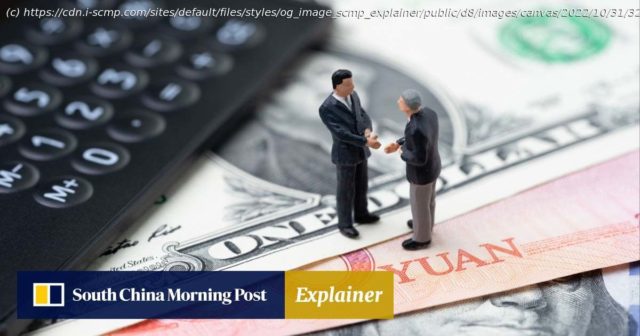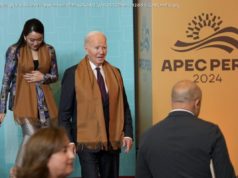Bolstering the yuan’s use globally has been on Beijing’s agenda for years, and here’s why doing so remains essential to leadership’s plans.
« : »With China’s rapid ascent of the global economic ladder in the past several decades, Beijing has been promoting the yuan both as an alternative currency in international trade and as a reserve currency. Why does China want to internationalise the yuan? Cross-border financial activities will be safer for China if the yuan is used as the unit of exchange, as it will reduce exchange-rate risks and allow the country to be less reliant on foreign institutions and international payment systems. This will also allow the world’s second-largest economy to borrow large amounts of money at lower interest rates internationally, as there will generally be higher demands from other countries for the yuan if it is used for their own trade invoicing and settlement. Broader use of the yuan will also enable Beijing to keep potentially sensitive information, such as the inflow and outflow of finances, much more private, according to Edwin Lai , an economics professor at the Hong Kong University of Science and Technology. What has China done to push for global use of the yuan? The Chinese government has set up global offshore yuan markets in cities such as Hong Kong, Singapore, London, Paris and Luxembourg that are kept separate from the onshore market. Offshore market exchange rates are left to market factors without any regulatory intervention, whereas only partial convertibility is allowed in the onshore markets. It allows the Chinese government to “retain the option of adjusting the extent of its capital controls when the needs arise”, Lai said. China signed 41 currency-swap agreements between 2009 and 2020, including with the European Union and 22 members of China’s Belt and Road Initiative . How much progress has been made to internationalise the yuan? A number of indicators, such as the Standard Chartered’s Renminbi Globalisation Index (RGI), point to progress being made, especially in recent years. The renminbi is the official name of China’s currency, while the yuan is the unit of currency. The RGI, which launched in November 2012, measures the “overall growth in offshore renminbi ‘usage’ by counting the currency’s use as a store of wealth, a trade-settlement currency and a means of capital raising, as well as its [foreign exchange] market trading volume”, according to Standard Chartered.
Home
United States
USA — China What does the yuan’s intensifying internationalisation mean for China’s economy?






